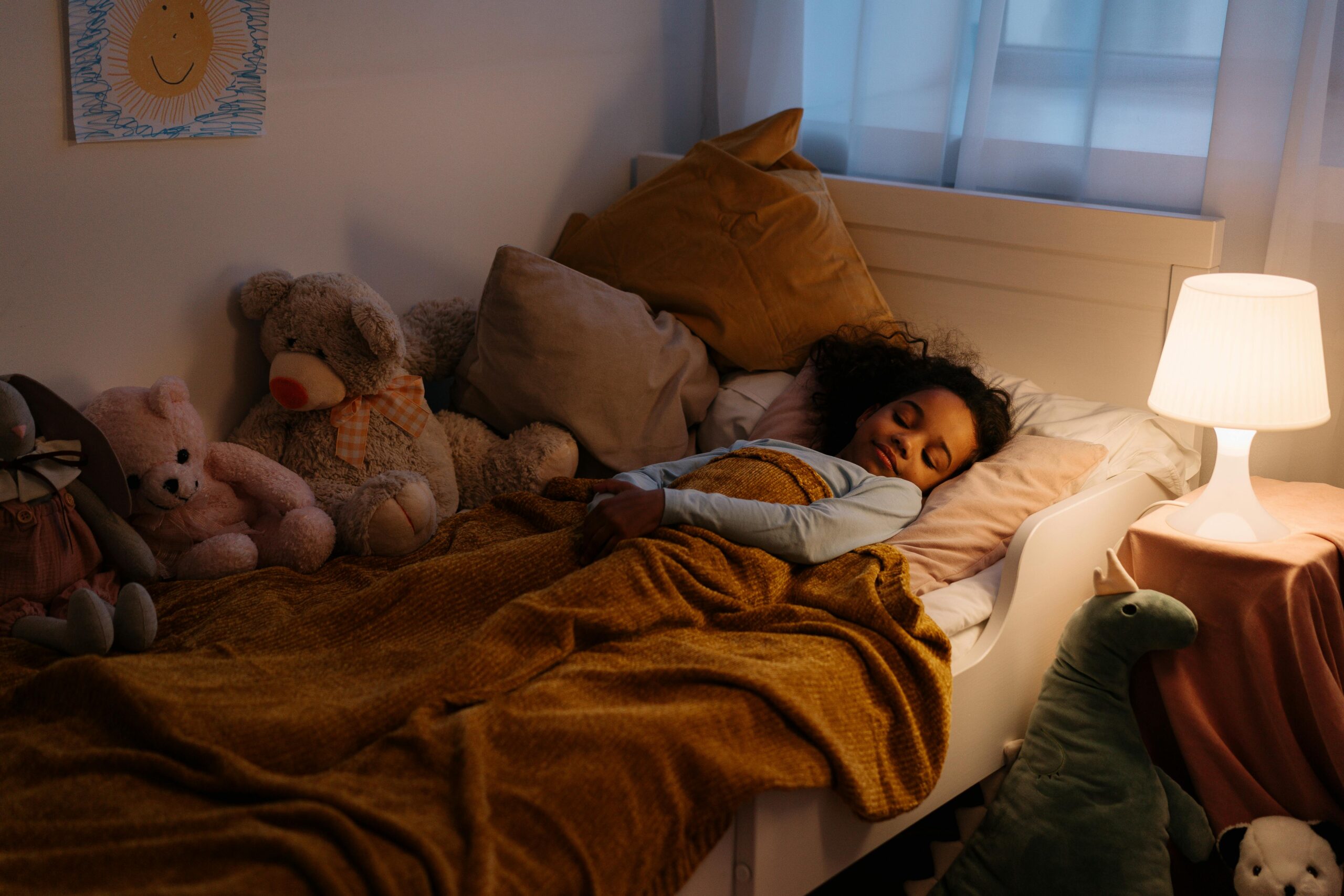Sleep is extremely important for one’s mood, growth, and overall wellbeing, but sometimes counting sheep just isn’t enough to fall asleep. Falling asleep can be particularly challenging for children with sensory processing differences, developmental delays, or Autism. Working with your family, occupational therapists can develop an individualized plan to help your little one fall asleep and catch some Z’s.
Why Isn’t My Kid Falling Asleep?
Sleep can be challenging for multiple reasons including:
- Sensory Sensitivities and Overstimulation: Your child may have heightened or under-responsive sensory processing, which means they can be overly sensitive to certain sights, sounds, textures, or even smells. These sensory sensitivities can make it difficult for them to relax and fall asleep.
- Difficulty Regulating Emotions: The transition from daytime and play to nighttime and bed can be challenging for those learning calming strategies for when transitioning can be challenging. Changes to routines from earlier in the day or known changes in future routines can also impact a child’s stress and ability to navigate through challenging emotions before they can calm to fall asleep
- Medical Issues: Gastrointestinal problems or other sleep-related disorders such as sleep apnea could also be negatively impacting your child’s ability to fall asleep and stay asleep (Consult with your child’s pediatrician to rule out any medical issues that may be affecting sleep.)
How Occupational Therapy Can Help
- Developing a Bedtime Routine: Having a routine helps kids wind down for the night. They know what to expect and don’t have to use additional brainpower to go from one step to the next.
- Creating a Sensory-Friendly Sleep Environment: Occupational therapists can coach you to make your child’s sleep environment the best for them. That may mean using a sound machine, looking at the fabrics of both the child’s clothes and the sheets, and incorporating calming sensory supports prior to bedtime.
Final Thoughts
If your child is experiencing difficulty falling asleep, reaching out to an occupational therapist may be a valuable step towards finding a solution that works best for your family. With the right support, restful nights and more manageable days can be within reach.
By Lauren Fong, OTR/L
